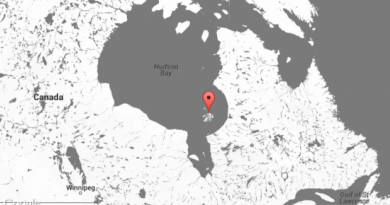Métis in Canada’s northern territories applaud landmark status ruling
 Yukon Métis leader says it will encourage more people to claim Metis status
Yukon Métis leader says it will encourage more people to claim Metis status
People in Canada’s North are celebrating a ruling which gives Métis and non-status Indians rights and fall under federal jurisdiction.
The Federal Court made the ruling Tuesday. It means that 600,000 Aboriginal people living off reserve in the country can claim Indian status.
The Congress of Aboriginal People brought the case forward in 1999. It wanted to clarify which level of government should deal with their concerns.
Sue Enge, a Métis woman in Yellowknife, the capital city of Canada’s Northwest Territories, called the ruling ground-breaking.
“This is just one step of many other steps to come that will solidify a future for my kids and their kids so that tomorrow is a day where governments will pay tribute to us, will recognize us and respect us,” she said.
A number of Métis people in the N.W.T. see the federal court case as monumental, but believe Canada will appeal.
The president of the Yukon Métis Association, Rick Christianson, is excited about the federal court decision, saying it has been a long battle.
Christianson said the decision should mean a boost in membership.
“A lot of people haven’t stated their heritage strictly because they’re figuring what good does it do if nobody is recognizing it anyway? This is going to be a huge, huge difference.”
Christianson said the decision, if it stands, opens up funding and other government programs to Métis across the country.
The Yukon Métis Association is not recognized by the federal government.
Under the constitution, the federal government has a financial responsibility to status Indians across Canada.
The win means the government must now consult with Métis and non-status groups prior to making decisions which could affect their rights and treaties
Ottawa can appeal today’s decision to the federal court of appeal. However, it will likely end up before the Supreme Court of Canada.
Métis lawyer Jean Teillet has been watching these developments in the courts. She said the ruling will have major implications for non-status Indians in the North.
“The problem for non-status Indians is that they have been entirely excluded as the federal government changes its definition of who’s an Indian under the Indian Act. Up until now, the federal government has said ‘no we don’t have to talk to you, we don’t have to give you programs and services, we don’t have to deal with you at all’. But this says that these people are within their jurisdiction and I think that will have a huge, huge effect.”
Teillet said those who used to be non-status can now apply for federal programs for status Indians.
Related Link:
Federal Court grants rights to Métis, non-status Indians, CBC News
For more northern stories from CBC News, click here



